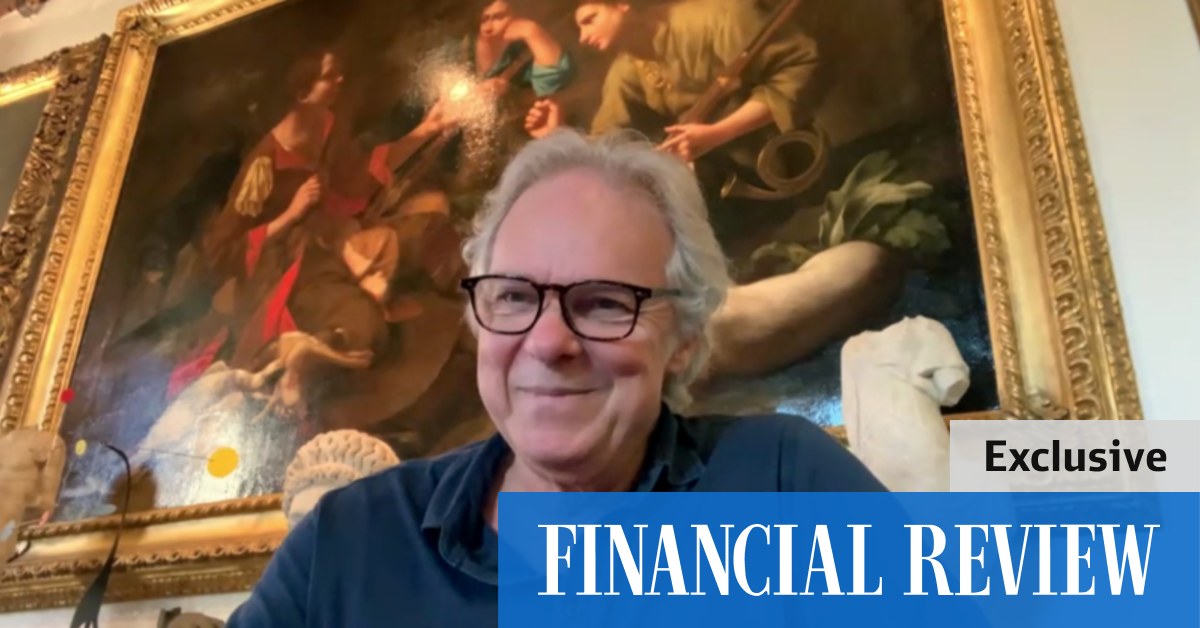Clough could go ‘around the world’ says Webuild’s global CEO

[ad_1]
Mr Salini pointed to Clough’s $US1.35 billion ($2 billion) contract to develop a new urea plant for Perdaman Industries on the Burrup Peninsula in a joint venture with Saipem as an example of the kind of future projects Webuild would like to be involved in, given the world’s need for fertiliser.
Global shortages of fertiliser have been exacerbated by sanctions against Russia, the world’s biggest exporter of fertilisers.
If countries cannot get fertiliser, crops will falter, causing migration and war, he said. “Investing in those projects as Australia is doing could mean the difference for the future peace of the world.”
Webuild’s global operations manager, Claudio Lautizi, has flown to Perth to assess Clough’s other Australian projects, which include the $2.3 billion Project EnergyConnect cable between South Australia and NSW, and the $768 million Waitsia gas project for Mitsui and Beach Energy in Western Australia.
The Italian group has exclusive rights until midnight Wednesday to finalise its deal with Clough’s administrator, Deloitte, to buy Clough projects. “If we can succeed in doing more, obtain all the contracts, this would be the best solution,” Mr Salini said.
The company is trying to take on additional projects partially to give clarity to Clough’s workforce and clients about the future.
But even if it doesn’t assume all Clough’s outstanding projects, Webuild wants to hire all of the contractor’s 1,200 employees due to the scarcity of skilled labour, he said. “We take all the people… if they want. They have a future with us.”
Webuild will not, however, assume responsibility for Clough’s North American projects which include the petrochemical project Traveler.
A new offer
When Webuild discovered that Clough, which went into administration in early December, was in financial difficulties, it started thinking about how it could use Clough’s resources to do projects in Australia instead of doing them alone. “It’s much easier to be an Australian in Australia than to be an Italian,” Mr Salini said. “Clough to us was a very good partner, very competent people.”
It made an offer to Clough’s South African parent, Murray & Roberts, to buy the whole company but the conditions of the deal couldn’t be met. When Murray & Roberts put Clough into administration, Webuild immediately talked to Deloitte about a new offer “because the rationale and also the interest for us was unchanged.”
Like Webuild, which was formerly known as Salini Impregilo and has agglomerated construction groups over the years including one founded by Mr Salini’s grandfather, Clough has its origins in a family business (it was acquired by Murray & Roberts in 2013.) “I think that in this way we are very similar,” Mr Salini said.
While taking on Clough’s employees was a big investment for Webuild, it would allow the construction group to provide better services to existing and future clients, he said.
With countries around the world building infrastructure to boost economies after the pandemic, there was global competition for people, machinery and other resources, Mr Salini said.
Webuild’s global scale – it operates in dozens of countries and has secured some €24 billion in new orders over the past two years including work on the Inland Rail and the Sydney Metro – is expected to help protect it from some of the risks encountered by Clough, which struggled with cost blow-outs.
Webuild and Clough won a $5.1 billion fixed price contract to build Snowy 2.0 in 2018 but have been trying to claim back close to $1 billion of extra costs.
Mr Salini declined to comment on whether Snowy 2.0’s costs would exceed $6 billion or whether the project would take more than an additional year to complete.
Potential escalations in costs were part of the reason Standard & Poor’s lowered its outlook on the BBB+ credit rating of Snowy 2.0’s federal government-owned parent, Snowy Hydro, on Tuesday.
The CEO acknowledged however that costs had risen on the project, arguing that that work had been difficult during the COVID-19 pandemic because it had been hard to move machinery and people around the world and the cost of building materials had risen.
Taking on Clough’s share of the Snowy 2.0 project was “a gesture of confidence,” he said. “Of course there is an extra cost to envisage in the future, and this is important because we all have to face the reality. The client knows and is willing to find a solution.”
Mr Salini is happy with Australia’s gradual shift back to alliance-style contracts, which share risks with construction groups, rather than just issuing fixed price contracts, arguing it is difficult and expensive for a contractor to forecast all possible risks of a project.
Governments should ensure the cost of materials was not an issue for contractors, he argued, pointing out governments that build many projects have leverage over the price of construction materials because they know how much will be needed over long periods of time.
“In a world in which everything changes, why should the client or project be the only one who do not have a change in the future costs? It is simply unbelievable.”
Everywhere, companies are encountering risks that “are impossible to tame” including the impact of the war between Russia and Ukraine. “To avoid the consequences of that is impossible.”
[ad_2]
Source link







